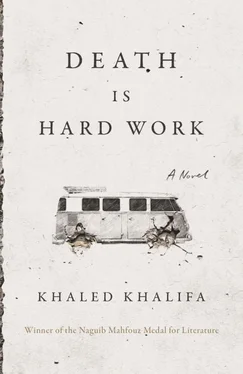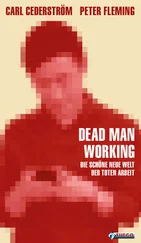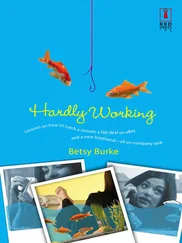Hussein seemed calm now. It helped Bolbol and Fatima to relax. They once again postponed the exchange of accusations they had each been nurturing. Bolbol stood the most accused, of course, for having embroiled everyone in this hellish journey they were no longer sure would ever end. The bravery they had boasted of had turned into a nightmare; the moment of their decision now seemed one of insane recklessness, but, even so, a secret satisfaction was creeping into Bolbol. He was no longer the person he had been for four years. He wished he could go back to the beginning, as he was now, so he could spit in his petty neighbors’ faces for perpetually spying on him and never trusting him.
He began to understand the secret of his father’s regained strength late in life: his psychic wounds all healing at once, his attitude changing, his no longer acting like a rotten fish waiting to be thrown into the nearest gutter. His eyes got back their twinkle; his body seemed to regain its youthful elegance; he started shaving again; he wore his new favorite clothes. Like a young man he exchanged his threadbare suits for jeans, T-shirts, and sneakers to help him outrun sniper fire. He didn’t sit and wait for the protests to pass his house but went to the mosque two hours before the afternoon prayer. He had never prayed in his life—everyone knew he was there to wait for the protests. He spoke with the young people and ignored their pleas to wait for them in front of his house where the protest passed every Friday. He thought up slogans and discussed new ideas. He reread the histories of revolutions and underlined many sentences. He offered copious explanations of the greatest revolutions in history, and his abundant enthusiasm made him into an icon. He resumed his role in the town as the respected teacher who was still fondly remembered by his students, and he lived the bitterness and the glory of the revolution alongside them. When Bolbol met up with his father for the penultimate time, he saw that Abdel Latif was no longer an old man filled with bitterness and loss, just waiting to die; he was an active man whose telephone rang at all hours, who had high hopes of living to see the regime fall and breathing in the freedom for which he had waited for so long.
In early May 2011, Bolbol found Lamia knocking at his door unexpectedly. Her eyes blazed, and she said, “There’s no time to lose, we’re going to S.” Without waiting for a reply, she went on to say she was joining the protests that day. Bolbol couldn’t get out of it, and they arrived at ten o’clock in the morning. She hugged Abdel Latif and embarked on a strange conversation with him about their moribund town, which expected sparks to fly today. Bolbol instantly resumed his other personality, the reckless, impulsive one that Lamia believed in, and went out with them. He was afraid, but when they blended with the huge crowd he could pretend he had broken with his former life, at least for the time being; peculiar feelings struck him and he shouted defiantly. His voice was weak at first, almost mute in contrast to his father’s and Lamia’s, who raised their hands in the air, their voices as strong as the other twenty thousand people shouting at once. Their voices rocked the town, whose entrances were being guarded by young men observing the road. They signaled to the other protesters when they spotted vehicles carrying soldiers approaching the town. After half an hour Bolbol merged with the others and truly began to shout. He felt a vehement delight; the moment he buried his fear was like his first orgasm. He tried to regain that feeling several times; although he couldn’t return to it, he could never forget it. It was an incomplete, unrepeatable pleasure, and it remained suspended in his life like the pendulum of a clock. More than twenty cars bristling with Mukhabarat and machine guns charged the protest and opened fire at close range. Bolbol saw bodies fall in a horrifying scene. Lamia, prostrate on the ground, was helped up by a young man who took her arm and escaped with her into a narrow alley. They were close to his father’s house, but Abdel Latif wouldn’t budge; he wanted to accept his own portion of death. Dead bodies were strewn everywhere. The Mukhabarat retreated after less than an hour—but that was more than enough time for a massacre. When Bolbol reached his father’s house, Lamia was waiting for him. She asked about his father, and he told her he had left Abdel Latif standing there, waiting for a merciful bullet. Again, the sound of gunfire broke out, and they heard young people running and cursing the regime and the Mukhabarat. Lamia opened the door when she saw that the neighbors had all done the same—letting the protesters seek shelter in their houses.
It was a great day. His father relived it a thousand times. As for Bolbol, that one visit was enough for him. Lamia stopped knocking on his door in the morning to take him with her to his father’s house.
She told him she felt an affinity with the martyrs who had fallen that day. She’d spent that night in Abdel Latif’s house, and they’d both helped to treat the wounded over at Nevine’s larger house, which had been turned into a field hospital. The town didn’t sleep; the families of the fallen kept vigil by the bodies of their sons and daughters. The army and the Mukhabarat patrols made relentless house raids and arrested scores of young people. Bolbol stayed alone in his father’s house. Abdel Latif and Lamia didn’t return before dawn. Bolbol heard them talking about the wounded by name. He tossed and turned, but didn’t get up. Lamia slept in Fatima’s room. Before she and Abdel Latif went to sleep, Bolbol heard his father ask her to wake him in the morning so they could go to the funerals.
Come morning, Bolbol didn’t dare flee, afraid that Lamia would think he was a coward. He tried to think of something that would cheer her up, and so prepared a large breakfast, but she and his father ate only a few mouthfuls and drank a few sips of coffee before they left to go back to the field hospital. Loudspeakers at the mosque were inviting people to attend the funerals after the afternoon prayer; public defiance was at its height. Bolbol wondered if fear might finally have changed sides; Lamia told him that she had seen soldiers looking terrified the moment they opened fire on unarmed people. But no, Bolbol told himself, this was artistic license, nothing more. How could someone holding a weapon be frightened by unarmed people waving nothing but their bare hands? Yet her innocent eyes seemed to tell him that lies and exaggeration were simply foreign to Lamia; on the contrary, she was always humble in her estimation of herself, deferring to others and overvaluing their roles in her life. Often, she had made Bolbol feel he was very important to her, asking him to do small favors and thanking him profusely afterward. She was the type who considered the presence of others to be a reward in itself. Bolbol was relieved when Lamia and his father didn’t ask him to accompany them to the field hospital. He went back to bed. He was still there when the funeral procession approached the house; curiosity prevented him from going back to sleep. He climbed to the roof and saw a flood of people below. Women were performing zagharid , ululating triumphantly, and roses and rice were being thrown from balconies. His father climbed the steps to the church with Father Walim; they grasped the rope of the huge bell and tolled it with all their strength while twenty thousand people raised their fists in the air in reply. It was an awe-inspiring scene, and Bolbol didn’t notice the tears slipping down his own cheeks.
Lamia was in the middle of the crowd, weeping and shouting; even where he stood on the roof, he could tell that her voice was screamed almost raw. The funeral procession passed, and a few minutes later Bolbol heard the sound of gunfire. Six young men and a woman were killed close to where Lamia stood; she spent the night delirious, her mind refusing to grasp what had happened. Bolbol’s fear returned and increased; he felt as though he personally were under siege. His father paced the living room furiously and spoke on the phone to his friend Nadir, a math teacher, telling him he would meet him at the graveyard. He hung up and left in a hurry. Bolbol followed him with a recklessness he hadn’t thought himself capable of, but then he, too, was furious.
Читать дальше












